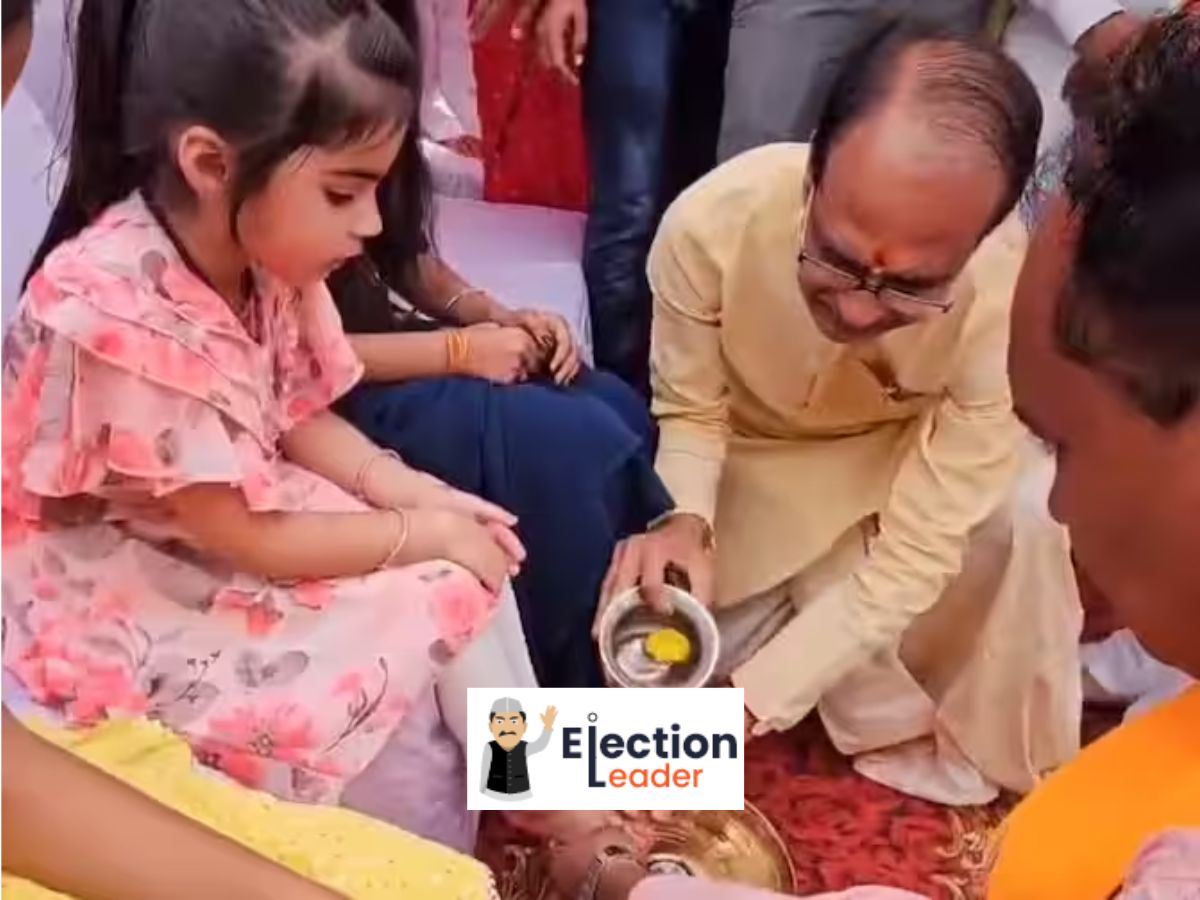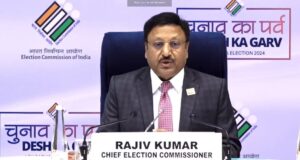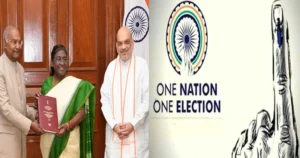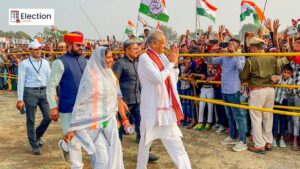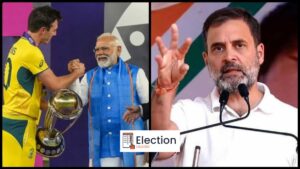Table of Contents
ToggleIntroduction
A verbal sparring match between two of the state’s most well-known politicians, Shivraj Singh Chouhan and Digvijaya Singh, has broken out during the campaign trail as Madhya Pradesh’s political climate heats up for the state elections.

In the most recent argument, Digvijaya Singh poked fun at Shivraj Singh Chouhan’s performance of a “Kanya Pujan” rite, calling it “nautanki,” or theatrical. This piece explores the latest events, the ‘Kanya Pujan’ ceremony, and the subsequent conversation between the two politicians.
Kanya Pujan: A Tradition with Cultural Significance
Kanya Pujan, alternatively called Kanjak Pujan or Kumari Puja, is a customary Hindu ceremony in which young girls, often in the age range of two to ten, are worshipped as the goddess Durga’s manifestations. In India, this custom is extensively observed and particularly well-liked at the time of the Navratri holiday. It is a show of respect and appreciation for the almighty feminine force.
Young girls are invited to homes, temples, or community centers for Kanya Pujan. They get gifts, are shown a tremendous deal of respect, and have their feet symbolically washed, which represents the purification of the soul. In addition to requesting supernatural blessings for the welfare of the household, the ritual aims to commemorate the purity and innocence of childhood.
Shivraj Singh Chouhan‘s ‘Kanya Pujan’ Ritual
Chief Minister Shivraj Singh Chouhan performed a ‘Kanya Pujan’ ceremony at a Madhya Pradesh Temple while on the campaign road. The custom attracted a lot of attention from the media and social media users. Experienced politician and prominent member of the Bharatiya Janata Party (BJP), Chouhan performed the rite with great zeal and dedication, asking young ladies for their blessings and demonstrating a fusion of politics, religion, and culture.
The ‘Nautanki’ Jibe
Digvijaya Singh, a senior Congress leader and former Chief Minister of Madhya Pradesh, took to Twitter to voice his thoughts amid the commotion surrounding Shivraj Singh Chouhan’s Kanya Pujan ritual. In his tweet, he referred to the custom as “nautanki,” which is Greek for “theatrics” or “drama.” Singh’s remark fueled the state’s already brewing political unrest.

The two lawmakers’ exchange sheds light on Madhya Pradesh’s extremely divisive political climate as well as the more general political climate in India. It also poses significant queries on the implications of using religious and cultural symbols in political campaigns.
Understanding the Verbal Spat
The Politics of Symbolism: In an increasingly varied and spiritually advanced nation like India, political leaders frequently appeal to people’s emotions by using cultural and religious symbols. Chouhan saw Kanya Pujan as a chance to play on the voters’ strong cultural and religious feelings, despite the ritual’s deep symbolic meaning.
Opportunism accusations: According to critics, Chouhan’s rendition of Kanya Pujan is a purposeful attempt to win over votes. They charge him with leveraging cultural and religious customs for his own political gain. In Indian politics, this is now a widespread charge, as many perceive such moves as opportunistic.
Political Polarization: The discussion between Digvijaya Singh and Shivraj Singh Chouhan highlights the pervasive political polarization in Madhya Pradesh and throughout India. Words like “nautanki” are used to emphasize the bitterness and insults that are all too typical in political discourse.
Freedom of Expression: The Indian Constitution guarantees politicians the right to freely express their religious views and take part in cultural customs, even if they should still be held responsible for their acts. Finding a balance between one’s own personal faith and the secular nature of the Indian state is a challenge.
Media Influence: Social media and media coverage frequently increase the influence of these kinds of interactions. This influences public opinion and may deflect focus from important problems that the electorate is confronting.
Conclusion
The discussion on the ‘Kanya Pujan’ ritual between Digvijaya Singh and Shivraj Singh Chouhan demonstrates the intricate relationship between politics, religion, and society in India. It reminds us of the difficulties politicians encounter in walking the narrow path between sincere professions of religion and charges of opportunism.
Voters should consider the Indian Constitution’s stipulation of the separation of church and state while evaluating the promises and deeds of political leaders in a larger context. Prioritizing pressing matters that affect the state and its citizens over political grandstanding and insults to individuals should be the emphasis of discussions leading up to the Madhya Pradesh elections.
The results of this election will serve as evidence of the preferences and intelligence of the Madhya Pradesh voters. It’s unclear how these recent occurrences will affect voters and the state’s political climate as election day draws near.

